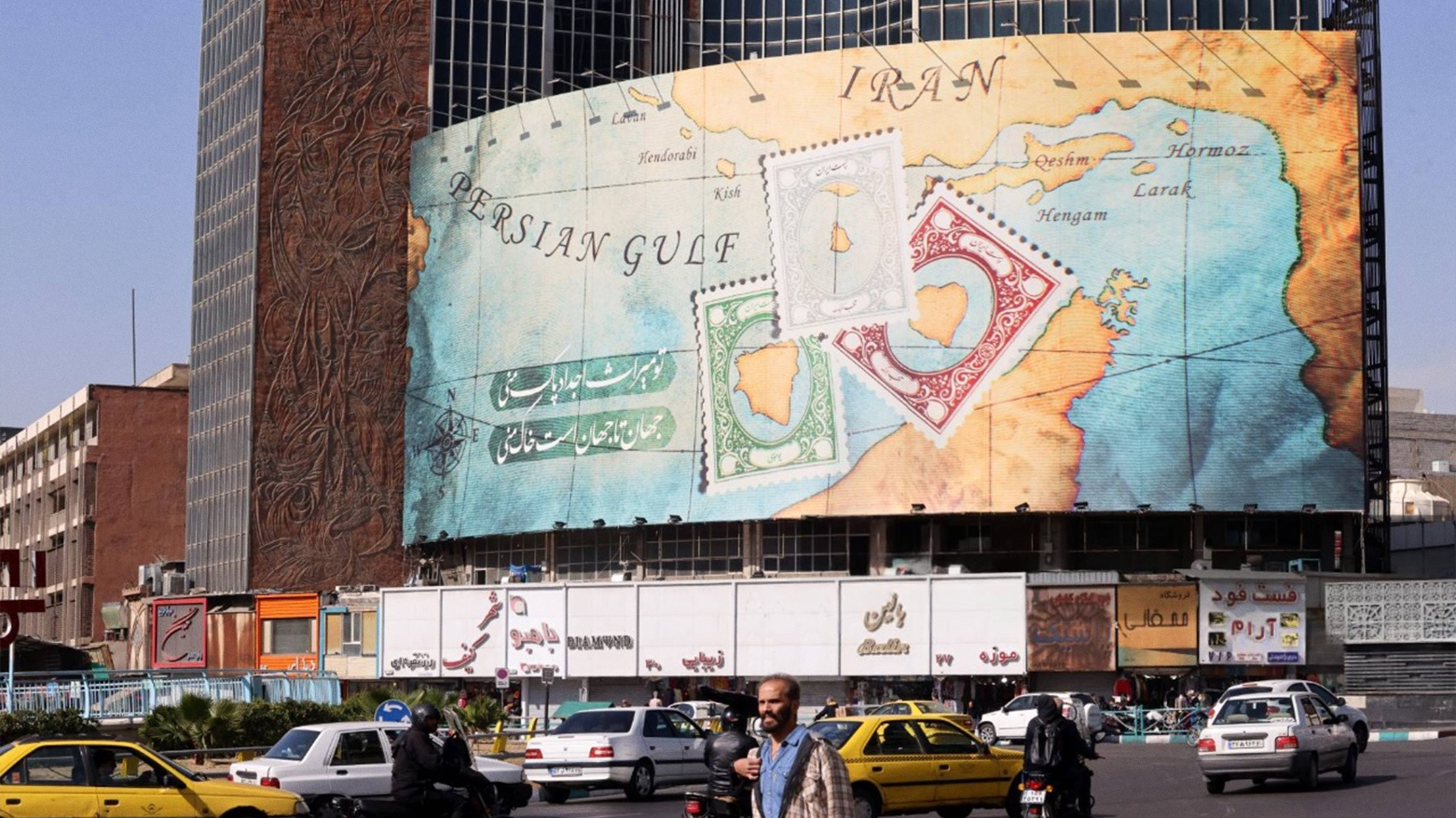Tehran Rejects Arab League's Claim to Disputed Gulf Islands: 'An Eternal Part of Iran'
"Any claim on Iran’s trio islands is contrary to the fundamental principles of the United Nations Charter and international law," Baqaei said, urging Arab states to uphold the principle of territorial integrity and to avoid what he called "baseless claims."

By Kamaran Aziz
ERBIL (Kurdistan24) – In a pointed response to the Arab League's final communiqué issued at the Baghdad summit, Tehran has firmly rejected regional calls to relinquish sovereignty over three contested islands in the Persian Gulf, reigniting a decades-old dispute with the United Arab Emirates (UAE).
Iranian Foreign Ministry spokesperson Esmaeil Baghaei, speaking on Monday, dismissed as "unacceptable" the claims made during the 34th Ordinary Session of the Council of the League of Arab States, which concluded in Baghdad on Saturday. According to the Islamic Republic News Agency (IRNA), Baghaei reiterated that the islands of Greater Tunb, Lesser Tunb, and Abu Musa are "an integral and eternal part of Iran."
"Any claim on Iran’s trio islands is contrary to the fundamental principles of the United Nations Charter and international law," Baghaei said, urging Arab states to uphold the principle of territorial integrity and to avoid what he called "baseless claims." He added that Iran views the revival of this issue in Arab League forums as undermining regional stability.
Clause 25 of the 34th Arab League’s final summit declaration, included under the section titled 'Developments in the Arab Homeland,' explicitly outlined its position—widely regarded as a diplomatic affront to Tehran.
"We affirm the sovereignty of the United Arab Emirates over its three islands—Greater and Lesser Tunbs and Abu Musa—and call on the Islamic Republic of Iran to respond to the peaceful initiative by the UAE to resolve the issue through direct negotiations or by referring the matter to the International Court of Justice (ICJ), in accordance with the rules of international law and the Charter of the United Nations. Such a resolution will contribute to building trust and enhancing security and stability in the Arabian Gulf region," Arab League's final communiqué wrote.
According to the report by IRNA, Iran has long warned against what it considers "unsubstantiated" or illegitimate claims over the islands. Tehran maintains that these assertions neither alter the legal reality of its sovereignty nor diminish its control over the strategic maritime locations.
The dispute over the islands dates back to the immediate aftermath of British withdrawal from the Gulf in 1971. As outlined in a background study by the Washington Institute for Near East Policy, Iran occupied the islands on November 30, 1971, one day before the UAE's formal independence from Britain. The move was interpreted at the time as a strategic effort to fill the vacuum left by the departing British naval presence. While Britain was not positioned to intervene, and the UAE was still a nascent confederation of tribal emirates, the seizure has since remained a diplomatic flashpoint.
The situation is further complicated by the layered history of British colonial administration and tribal rule. Historical British records contain conflicting attributions of sovereignty to both Iran (then Persia) and Arab tribal authorities, contributing to the legal ambiguity. The islands are separately claimed within the UAE federation—Abu Musa by the emirate of Sharjah and the Tunbs by Ras al-Khaimah.
While Sharjah entered into a 1971 memorandum of understanding with Iran allowing for shared administration and oil revenue from Abu Musa, the balance shifted in 1992 when Iran expanded its military presence and restricted Emirati access. Since then, Tehran has refused calls to refer the matter to the ICJ, in contrast to the resolution of a similar territorial dispute between Qatar and Bahrain in 2001.
The Washington Institute notes that Iran's entrenchment has hardened over the decades, in part due to regional disunity. Although Iraq hosted the recent summit and endorsed the Arab League statement, this represents a departure from its earlier neutrality. As recently as this year, Baghdad declined to join a communiqué on the matter during an Arab Inter-Parliamentary Union meeting, suggesting divisions within the Arab world itself.
The islands lie at the heart of vital shipping lanes in the Strait of Hormuz, one of the world's most strategically significant maritime chokepoints. Given their geopolitical importance, the contest over the Tunbs and Abu Musa continues to stoke tensions between Iran and the Gulf Cooperation Council, particularly the UAE, whose sovereignty claims form a pillar of its foreign policy.
Despite repeated diplomatic overtures by the UAE for bilateral negotiations or adjudication through international legal bodies, Tehran remains steadfast in its refusal to engage in dialogue that would question its sovereignty. As Baghaei concluded, the matter is, for Iran, "non-negotiable" and firmly closed.
The reemergence of the island dispute at the Baghdad summit underscores the enduring volatility of Gulf geopolitics, where history, national identity, and strategic interests remain deeply entangled.